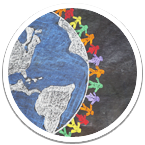Part 13: Racism and anti-racism in healthcare
In part thirteen, Research Manager and Doctor of Philosophy Shadia Rask talks about racism and anti-racism in the Finnish health care and service system.
Rask uses research data to highlight the fact that there are differences between demographic groups in the use of health care services. Furthermore, studies have shown that unmet needs for medical care are considerably common among many immigrant groups. In fact, people with a foreign background have less faith in the health care system and the availability of necessary treatment when compared to the rest of the population.
Health care professionals encounter racism and discrimination. Moreover, even the structures of the Finnish health care system are racist. We need anti-racism to achieve the fundamental goal of health care: to promote and maintain the health and well-being of the population, reinforce working and functional capacity, and to strengthen social safety, i.e. to reduce health-related inequalities.
Materials supporting learning
Key concepts:
- anti-racism
- health inequalities
- representation
- prejudice
Read more about the key concepts.
Reflect on the following questions:
- How does the history of medical science affect the modern health care system?
- Why is zero-tolerance for racism not the same thing as anti-racism?
- What kind of tools are used in your work community for anti-racist efforts?
- How does racism impact the level of trust that different population groups have in health care professionals?




